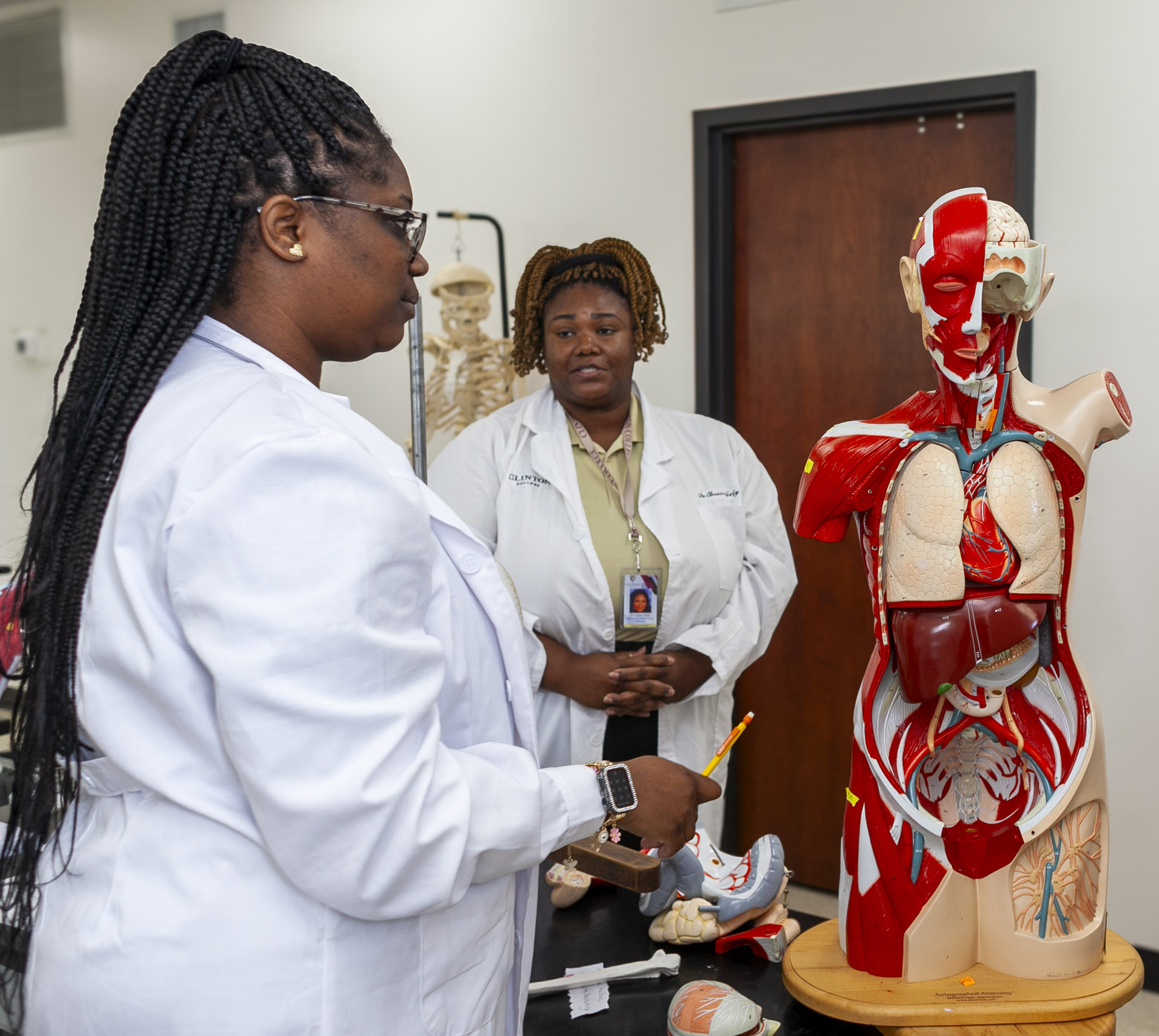
Program Mission
The mission of the Bachelor of Science in Healthcare Administration is to provide students with knowledge required to manage healthcare settings. The Healthcare Administration major provides students with analytical and conceptual skills in order to prepare and give them the necessary background to excel in healthcare operations. This major offers a strong foundation in business operations and regulations, policies, risk management, and ethics.
Student Learning Outcomes (SLOs)
The B.S. in Healthcare Administration program aligns with the Clinton College mission elements of promoting academic achievement through its Conceptual Knowledge and Skills-based student learning outcomes. It aligns with the mission elements of promoting positive moral and spiritual development, fostering leadership qualities, and encouraging students to be good citizens who can contribute to a global society.
Disciplinary Knowledge: Students will analyze management principles and strategies within health care organizations.
Problem Solving: Analyze contemporary strategic planning and decision-making in healthcare to assess alternative management solutions in healthcare related problems and challenges.
Applied Learning: Students will analyze regulatory guidelines that impact the healthcare industry and use strategic planning models to solve related problems and challenges in health care.
Competency: Students will integrate human resource, finance and management into the healthcare settings.
Critical Thinking: Evaluate critical issues in health care environments from the perspectives of the healthcare stakeholders.

Degree Requirements (120 hours)
This listing of requirements is for information purposes as of the dating of this catalog. Part One of this bachelor’s degree is identical to the Associate of Science in Business Administration. Part Two is restricted to students admitted to the bachelor’s degree and having a class standing of junior or senior.
Total 60 Hours
General Education Requirements (31 total hours)
Free Electives at the 100 or 200 Level (6 total hours)
Requirements for the Major (23 total hours)
ABIO 210: Anatomy and Physiology I
BIO 211: Anatomy and Physiology II
HEA 101: Medical Terminology
HEA 102: Leadership and Ethics in Healthcare
HEA 200: Legal and Ethical Issues in Healthcare
HEA 201: Business Management for Healthcare Professionals
HEA 202: Finance for Health Care
Total 60 Hours
General Education Requirements (4 total hours)
Free Electives at the 300-400 Level (6 total hours)
Concentration for the Major (18 total hours)
Requirements for the Major (32 total hours)
HEA 300: Long Term Care
HEA 301: Information Technology and Systems for Healthcare
HEA 302: Strategic Planning in Health Care
HEA 303: Healthcare Rights and Responsibility
HEA 320: Healthcare Economics
HEA 330: Healthcare Policy
HEA 340: Continuous Quality Improvement and Accreditation
HEA 400: Managing Human Resources and Health Professionals
HEA 450: Healthcare Planning and Evaluation
HEA 490: Healthcare Administration Capstone

Career Options
These are just a few of the careers you could start with a degree in Healthcare Administration!

Hospital Administration
Manage the operations of hospitals and healthcare facilities, overseeing staff, budgeting, and patient services.

Health Policy
Develop and implement healthcare policies at governmental or organizational levels, aiming to improve public health systems and regulations.

Medical Practice Management
Manage the day-to-day operations of medical practices, including scheduling, billing, and compliance with healthcare laws.
